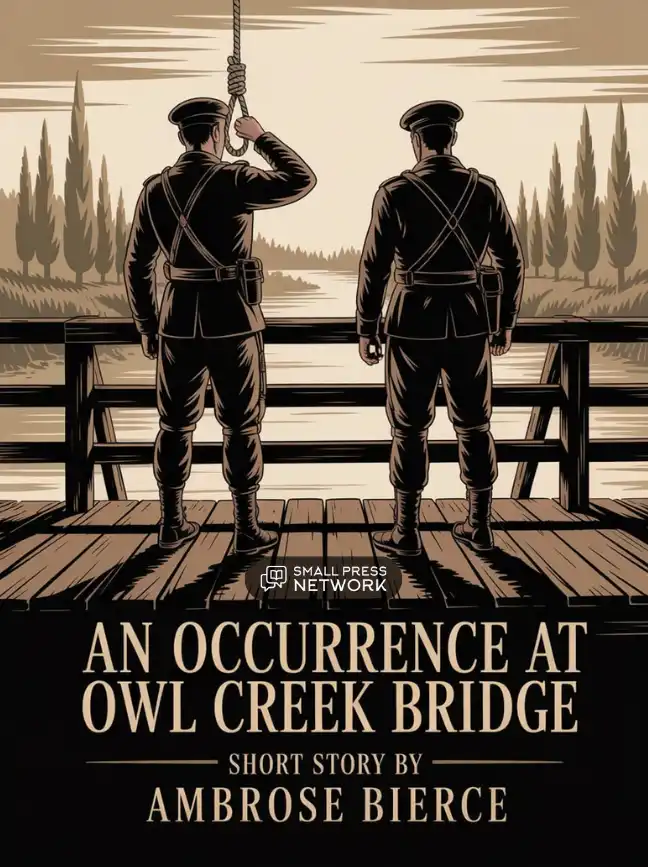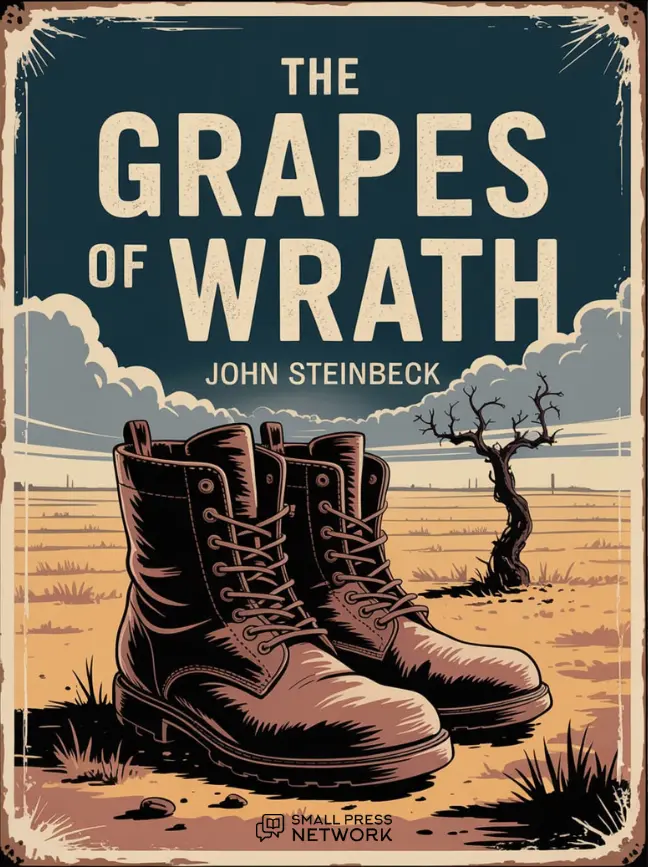An Occurrence at Owl Creek Bridge is a short story by Ambrose Bierce, first published in 1890. Set during the American Civil War, the story follows Peyton Farquhar, a Southern planter who is about to be hanged by Union soldiers for attempting to sabotage a bridge. As the execution takes place, Farquhar experiences what seems to be a miraculous escape, journeying through the forest back to his home and family—only for the story to reveal in a shocking twist that the escape was a vivid hallucination in the moments before his death.
The story is known for its innovative structure, blending realism with psychological fiction and featuring one of the most famous surprise endings in American literature. Through shifting timelines and a deep dive into the mind of a man facing death, Bierce explores themes of illusion, the fluidity of time, and the brutal realities of war. An Occurrence at Owl Creek Bridge remains a powerful example of narrative experimentation and a haunting reflection on the fragility of human perception.







